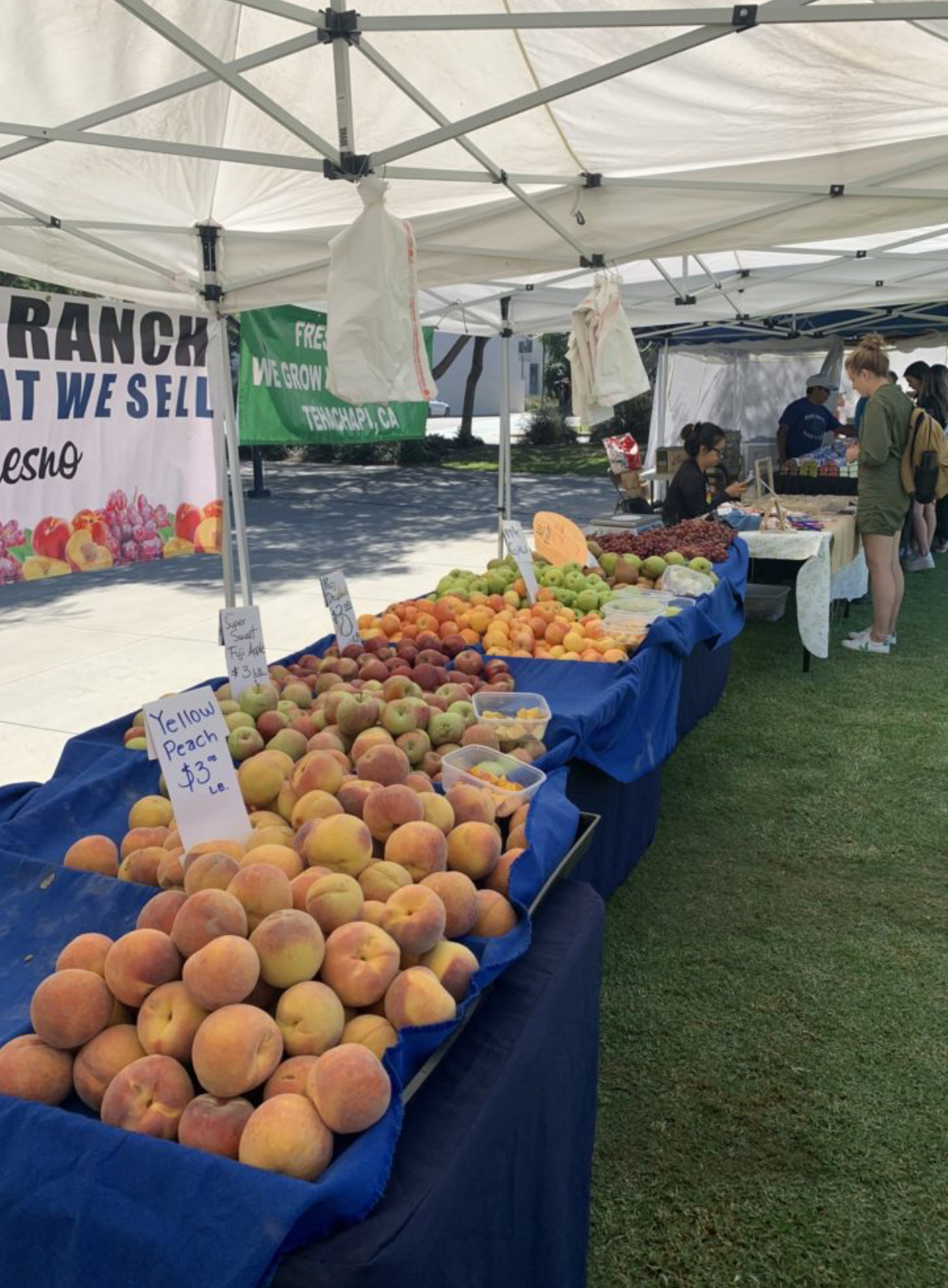
By Nathan Herbold
Prof. Zamora
OP-ED Assignment
Dec 6th, 2023
In the vibrant tapestry of Los Angeles, where diverse cultures converge on every street
corner, the humble yet dynamic presence of street vendors has become a hallmark of the city’s
identity. These local entrepreneurs, armed with nothing more than a cart or a small stall, play a
pivotal role not only in shaping LA’s culinary landscape but also in contributing significantly to
the economic resilience of the communities they serve. Campus’s like Loyola Marymount
University stand at the crossroads of academics and urban life, it finds itself positioned to
harness the power of these unsung heroes. Rather than falling to the allure of overly expensive
corporatized food trucks, the university has the chance to contract only with LA’s street vendors,
infusing a sense of authenticity, community, and economic sustainability into the campus
experience. By embracing these vendors, LMU can not only offer students an affordable and
diverse culinary experience but also play a role in preserving the soul of the city. It’s a symbiotic
relationship that transcends mere transactions, fostering an environment where the act of eating
becomes a celebration of culture, diversity, and economic empowerment. It’s time for LMU to
make a deliberate choice—one that not only satisfies taste buds but also feeds the economic
vitality of the local community.
In the diverse landscape of Los Angeles, street vendors quietly occupy a significant role
in shaping the city’s identity. These local entrepreneurs, armed with nothing more than a cart or a
small stall, wield influence not just over LA’s culinary landscape but also contribute notably to
the economic resilience of the communities they serve. At crossroads like Loyola Marymount
University, there lies an opportunity to tap into the potential of these often-overlooked
contributors. Instead of succumbing to the allure of pricey, corporatized food trucks, the
Herbold 2
university has the prospect of engaging exclusively with LA’s street vendors. This move could
inject a genuine sense of authenticity. However, the case for such a shift requires supporting
evidence to illustrate the impact on both students and the local vendors’ economic well-being.
The potential benefits, including offering an affordable culinary experience, stand as compelling
arguments. According to my own personal research, every meal at LMU’s “Wellness
Wednesday,” falls within the range of seventeen dollars and twenty-four dollars. A meal from
external food vendors, defined as a main dish, side dish, and a drink, averages twenty-one dollars
per trip. Additionally, I traveled to each street vendor I could find within a two mile radius of the
school. Including the food trucks on the south end of the Sepulveda Target lot, I never once had a
meal top eighteen dollars. For both of these collections I got the cheapest options for every
vendor and asked for price drops as much as possible. If students were to buy from these vendors
each wednesday over the course of an eighteen week semester, they would save an average of
fifty-four dollars. By embracing these vendors, LMU could not only satisfy students’ palates but
also actively contribute to preserving the economic growth of its students. fifty-four dollars may
not seem like a significant amount of money, but for LMU’s rough population of 8,000
undergraduate students, that is 432,000 dollars over the course of one semester, creating an
economic gap that could easily be surpassed by a simple and connective change in food vendors.
Amid the convergence of cultures in Los Angeles, the relationship between street vendors
and the city’s identity is echoed within the walls of Loyola Marymount University. The
university has a unique opportunity to cultivate a sense of community growth on its campus.
Engaging exclusively with LA’s street vendors rather than succumbing to the allure of
corporatized food trucks can be a transformative choice for LMU. This shift would not only
infuse authenticity into the culinary experience but also foster a deeper connection between
students and the broader city culture. For students of Latin American descent, in particular, this
connection becomes a vital bridge to their heritage, providing a taste of home away from home.
Embracing street vendors aligns with the ethos of inclusivity, creating a communal space where
diverse backgrounds converge, breaking down barriers through shared culinary experiences.
Herbold 3
Having authentic heritage food on campus “acknowledges and emphasizes the importance of
food heritage in the context of food security and was considered as an original and key
contribution of the academic development of students.” (Kapelan 12) The potential impact on
community growth becomes evident as students find common ground in the shared appreciation
for the rich tapestry of flavors offered by local vendors. This organic integration of street vendors
into the campus fabric not only satisfies the taste buds but also nurtures a sense of belonging and
shared identity, contributing to a more vibrant and inclusive LMU community. As the university
becomes an example of the city’s diversity, the choice of food vendors becomes a powerful tool
for fostering equal growth, ensuring that every student, regardless of their background, feels a
sense of connection and community on campus.
In the dynamic world of Loyola Marymount University, the authenticity of its choices is
crucial in shaping how the campus is perceived. The university’s mission statement emphasizes a
commitment to educating students for adaptability in an ever-changing world: “We are
committed to educating our students to use their imagination and intellectual curiosity in
understanding business challenges, solving problems in transdisciplinary ways, and adapting to
change. Our students will develop and enhance their technical skills, critical thinking, and
communication skills to positively transform organizations and societies.” (LMU) The choice of
food vendors becomes a tangible expression of this commitment. The absence of authentic street
vendors not only impacts the culinary landscape but also influences the overall image of the
campus, potentially making it feel more corporatized than a thriving hub for academia. The
authenticity of the university’s environment is not solely confined to academic pursuits but
extends to every facet of student life, including the culinary experience. The inclusion of diverse,
authentic street vendors aligns seamlessly with LMU’s mission, allowing students to use their
imagination and intellectual curiosity in embracing the rich cultural diversity represented by
these vendors. The absence of such vendors could undermine the university’s efforts to create a
transdisciplinary and adaptable learning environment, potentially hindering its ability to
positively transform organizations and societies as outlined in its mission. By embracing
Herbold 4
authentic street vendors, LMU can actively embody its commitment to authenticity and create an
environment where students experience a genuine reflection of the diverse and dynamic culture
that defines Los Angeles.
In closing, Loyola Marymount University stands at a pivotal juncture where the choice of
embracing authentic street vendors can go beyond satisfying taste buds. It becomes an
opportunity to preserve the essence of the city, foster economic growth, and align with the
university’s commitment to adaptability and inclusivity. By rejecting the corporatized allure of
food trucks and instead cultivating a diverse culinary experience rooted in authenticity, LMU has
the chance to become a beacon of cultural celebration and community connection. It’s a
deliberate choice that transcends transactions, turning the act of eating into a celebration of
culture, diversity, and economic empowerment.
BIBLIOGRAPHY
Herbold, Nathan. Personal Interview, Street Vendors et al. Conducted Dec 1-3, 2023
Kapelari, Suzanne, et al. “Food heritage makes a difference: The importance of cultural knowledge
for improving education for sustainable food choices.” Sustainability 12.4 (2020): 1509.
Loyola Marymount University. “Mission, Vision + Core Values.” Mission, Vision + Core Values –
Loyola Marymount University,
cba.lmu.edu/about/mission/#:~:text=We%20advance%20knowledge%20and%20develop,good%20in%20
the%20global%20community. Accessed 6 Dec. 2023.




